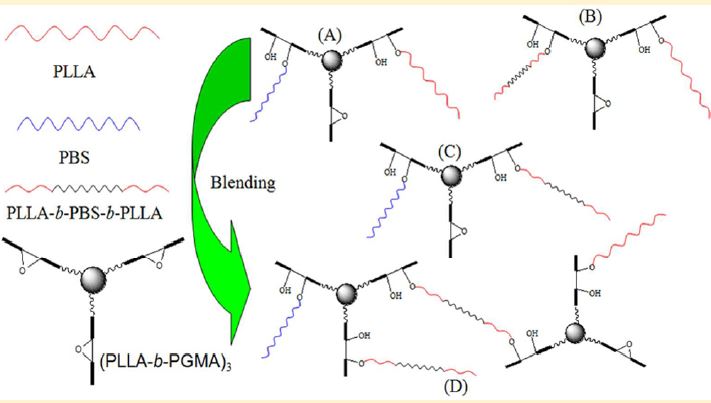

GROUP DYMAMICS
Bao Zhang, Bin Sun, Xinchao Bian,* Gao Li, and Xuesi Chen*Ind. Eng. Chem. Res. 2017, 56, 52−62

Poly(L-lactide)/poly(butylene succinate) (PLLA/PBS) blends were prepared by melt mixing with a PLLA-based compatibilizer (PBS-PLLA) and a chain extender triarm block copolymer (PLLA-block-poly(glycidyl methacrylates)) 3 (PLLA-b-PGMA)3. The tensile testing showed significant improvement in mechanical properties and remarkably maintained high strength. Rheological investigation of PLLA/PBS/PBS-PLLA/(PLLA-b-PGMA)3 indicated that the viscosity and storage modulus was improved greatly compared with neat PLLA. Elongational viscosity measurements exhibited strong strain-hardening behavior. The increase of the torque indicated the occurrence of chain branching and chain extension reaction. The imperfect crystallization of PLLA/PBS/PBS-PLLA/(PLLA-b-PGMA)3 blends was demonstrated by the lowered melt point of PLLA. SEM showed that the PBS-PLLA and (PLLA-b-PGMA)3 significantly improved the compatibility of the PLLA/PBS blends. It was indicated that the synergistic effects of PBS-PLLA and (PLLA-b-PGMA)3 in PLLA/PBS blends played a key role in properties enhancement. With copolymerization and in situ reactive compatibilization, PLLA/PBS/PBS-PLLA/(PLLA-b-PGMA)3 blends not only improved the toughness but also improved the melt strength.